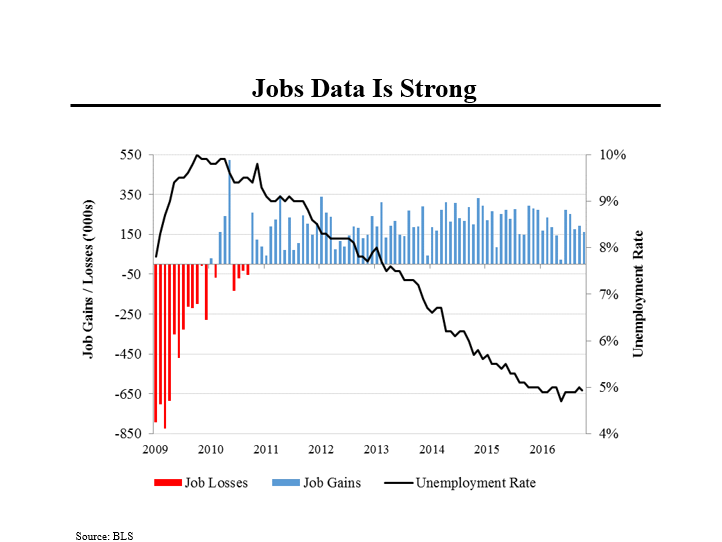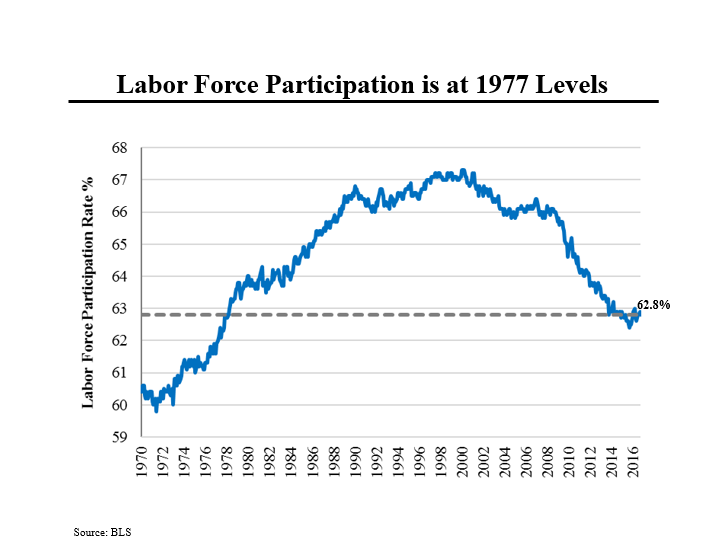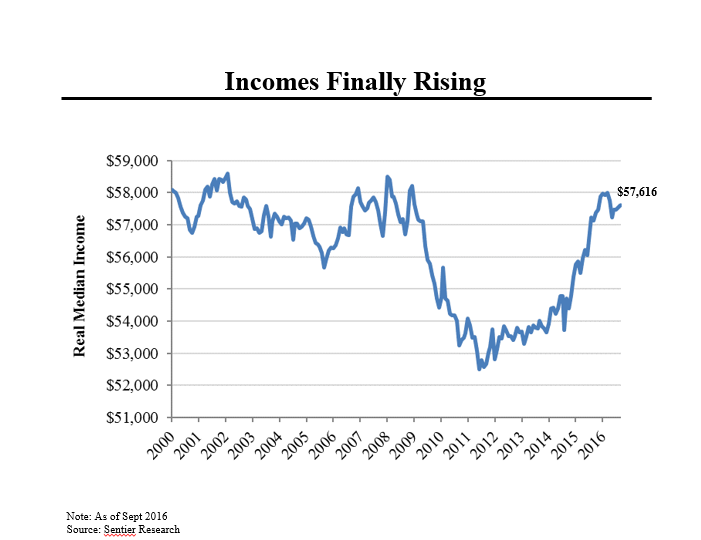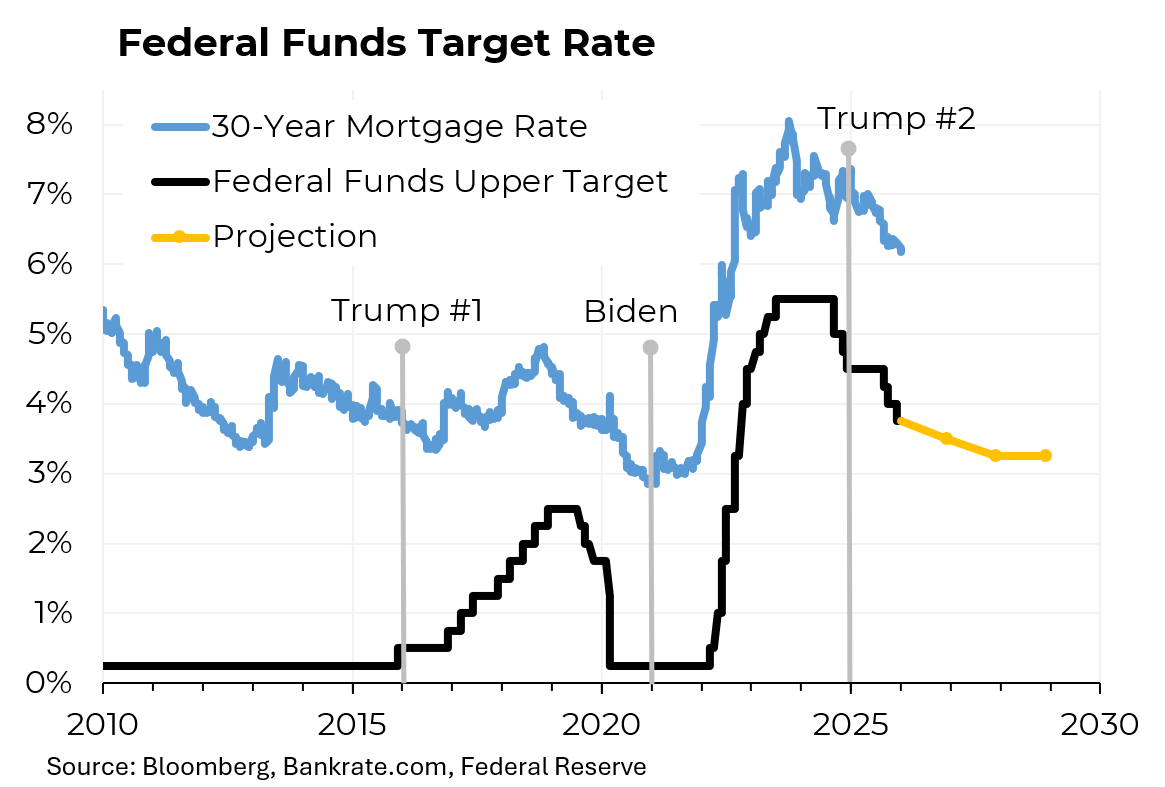As Americans go to the polls next Tuesday, they will be confronted by an economy that has continued to grow and add jobs but not brought incomes back to where they were before the recession and financial crisis.
Note 1: for the related Morning Joe video, click here.
Note 2: the charts below have been updated for today’s jobs data.
We had another good jobs report today, in line with the average monthly increases of about 170,000 jobs for the past six months. All told, the economy has added jobs for a record 73 straight months, doubtless a significant part of the reason why President Obama’s approval rating has climbed to 52%. In concert with the increases in jobs, the unemployment rate has dropped to 4.9%. The last time the unemployment rate was 4.9% was Feb of 2008.
But even as the economy has added jobs and the unemployment rate has fallen, many Americans have dropped out of the labor force. Today, just about 63% of Americans over the age of 16 are either employed or looking for work, the lowest since 1977. A bit more than half of the decline since the peak in 2007 is a result of demographic changes, specifically the increase in the number of elderly. A small portion relates to the residual effects of the financial crisis and recession. Economists don’t have a good explanation for the remainder.
But the social consequences are unmistakable. As we discussed last week, the death rate for whites between 45 and 54 has been rising, even as it has been dropping for similar groups in almost every other developed country. And those deaths are not from disease – they are from drug overdoses, suicides and alcoholism. They are also disproportionately concentrated among lower economic groups, whose lifespans have shrunk even as those of wealthier Americans have lengthened.
Finally, median family incomes fell precipitously during the economic crisis, from a peak of $58,500 in January 2008 to $52,496 in June 2011. And with income inequality worsening, those below the average suffered more. Interestingly, in the past two years, incomes have begun to rise – and in 2015, even rose sharply. However, this may not have yet been a long enough trend to have become part of the narrative for most Americans.








